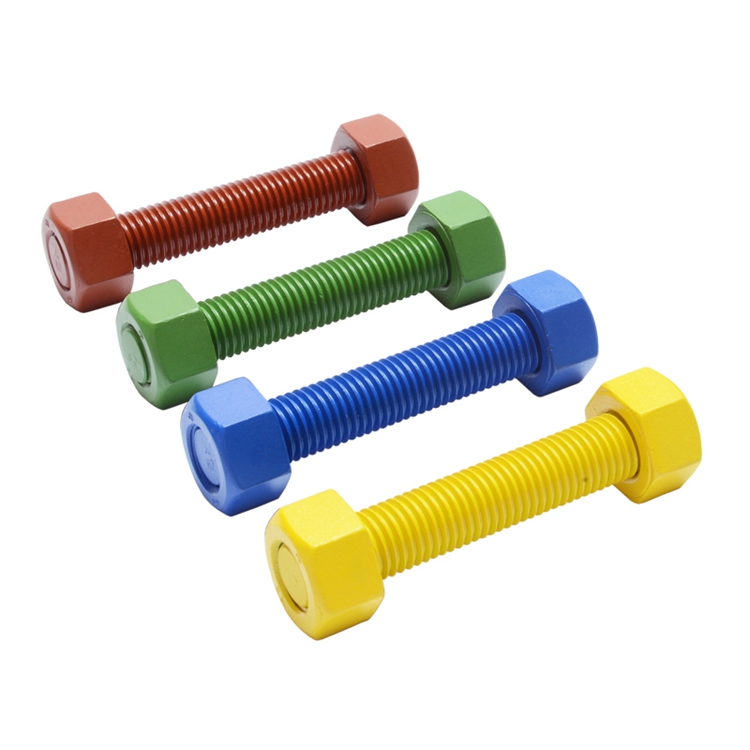high quality 1 2 inch anchor bolts
Dec . 04, 2024 11:25 Back to list
high quality 1 2 inch anchor bolts
High-Quality 1-2 Inch Anchor Bolts Essential Components for Structural Integrity
Anchor bolts are critical components in the realm of construction and engineering, providing the necessary stability and support for various structures, including buildings, bridges, and machinery. Among the various specifications of anchor bolts, 1 to 2-inch bolts are particularly prevalent due to their versatility and effectiveness in a wide range of applications. This article will explore the characteristics, types, applications, and importance of high-quality 1 to 2-inch anchor bolts.
Understanding Anchor Bolts
Anchor bolts are used to attach structures or fixtures to concrete. They create a strong link between the foundation and the components above, ensuring stability even under significant loads or adverse environmental conditions. Typically made from steel and coated for corrosion resistance, these bolts come in various sizes and shapes, but the 1 to 2-inch diameter range strikes a balance between strength and manageability.
Characteristics of High-Quality Anchor Bolts
1. Material Specifications High-quality anchor bolts are often made from carbon steel or stainless steel, which provides excellent strength and resistance to corrosion. Stainless steel bolts are particularly useful in marine applications or environments where moisture is prevalent.
2. Dimensions and Tolerance The precision of the bolt's dimensions is crucial for proper installation and load transfer. High-quality manufacturers adhere to strict tolerances to ensure each bolt fits perfectly with its corresponding hardware.
3. Coating Many anchor bolts are coated with materials like zinc or epoxy to enhance their corrosion resistance. High-quality coatings ensure durability, extending the life of the bolts even in harsh environments.
4. Strength Properties The tensile strength and yield strength of anchor bolts determine their ability to withstand loads without breaking or deforming. High-quality bolts meet or exceed industry standards, providing confidence in their performance.
Types of 1-2 Inch Anchor Bolts
1. L-Bolts Shaped like the letter L, these bolts are ideal for anchoring items that require a horizontal base.
2. J-Bolts With a hook-like end, J-bolts are frequently used in applications where additional gripping strength is needed.
3. Straight Anchor Bolts These are the most commonly used type and are straightforward in design, perfect for bolting directly into concrete.
4. Expansion Bolts These are designed to expand once inserted into a pre-drilled hole in the concrete, creating a tight bond with the surrounding material.
high quality 1 2 inch anchor bolts

Applications of 1-2 Inch Anchor Bolts
High-quality 1 to 2-inch anchor bolts have a broad spectrum of uses, including
- Building Construction In commercial and residential buildings, anchor bolts are critical in securing structural components to the foundation, helping to manage the forces exerted by wind, seismic activity, and overall weight.
- Bridge Engineering Bridges rely on anchor bolts to secure sectional components, ensuring structural integrity and public safety.
- Industrial Machinery Heavy machinery is often bolted down to prevent movement during operation. High-quality anchor bolts provide the stability needed to maintain operational efficiency.
- Telecommunication Towers The stability of towers is vital for optimal signal transmission. Anchor bolts play a significant role in securing these structures to their foundational bases.
Importance of Using High-Quality Anchor Bolts
Using high-quality anchor bolts is paramount for several reasons
1. Safety The primary function of anchor bolts is to provide safety and stability. Subpar materials or poorly constructed bolts can lead to catastrophic failures, endangering lives and property.
2. Durability High-quality bolts are more resistant to environmental stressors, which reduces the likelihood of needing frequent replacements, ultimately saving money in maintenance and repairs.
3. Performance Under Load High-quality anchor bolts can handle more significant loads without yielding, ensuring that structures remain sound and secure even under extreme conditions.
4. Compliance Many construction projects must adhere to local codes and standards that specify materials' quality. Using high-quality anchor bolts ensures compliance and helps avoid costly inspections or rebuilding.
Conclusion
In conclusion, high-quality 1 to 2-inch anchor bolts are essential components in modern construction, providing vital support and stability across various applications. Their material properties, durability, and design cater to a wide array of needs within the construction industry. By prioritizing the use of high-quality anchor bolts, builders can ensure the longevity and safety of their structures, benefiting both the integrity of the project and the safety of the individuals who use them. Remember, investing in high-quality materials today is safeguarding the future of our infrastructure.
Latest news
-
High-Quality Panel Stud Bolt Reliable Panel Stud Bolt Factory & Suppliers
NewsJul.08,2025
-
High-Precision Fine Thread Locknuts Manufacturer & Supplier Custom Solutions
NewsJul.08,2025
-
PH Imperial Stud Bolt – High Strength Fasteners from Leading Supplier & Factory
NewsJul.07,2025
-
High-Quality Allen Wrench Bolts Leading Factory, Company & Suppliers
NewsJul.07,2025
-
Wholesale Ball Stud Bolt - High Quality Supplier & Factory Price Reliable Wholesale Ball Stud Bolt Company
NewsJul.06,2025
-
High-Strength Alloy Bolts Manufacturer & Supplier Quality Alloy Fasteners Factory
NewsJul.06,2025
